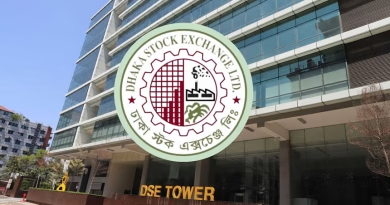Market analysts have raised concerns over potential manipulation in the stock market as several companies with halted production continue to trade actively despite generating no revenue.
At least four listed firms, including Aramit Cement, New Line Clothings, Nurani Dyeing & Sweater, and Ratanpur Steel Re-Rolling Mills (RSRM), remain under scrutiny after investigations revealed they had stopped operations months ago. Yet, their shares are still being traded regularly — a pattern analysts describe as a dangerous sign for small investors.
“Investing in companies with halted production is highly risky,” said one veteran investor. “Some traders with insider information may buy these stocks for quick gains, but small investors often get trapped chasing false momentum.”
Non-operational but still trading
Aramit Cement, inactive since before last July, saw notable trading on August 24 and September 3, even after the Dhaka Stock Exchange (DSE) warned the company repeatedly. Its shares are currently priced at Tk 11.70.
Similarly, New Line Clothings Limited, whose shares were manipulated in 2021 causing losses worth hundreds of crores, continues to trade actively in the Z-category — typically reserved for poorly performing firms. A share now trades at around Tk 5, down from Tk 26 a year ago. In September, the Bangladesh Securities and Exchange Commission (BSEC) fined five investors Tk 13.33 crore for manipulation involving the company’s shares.
Nurani Dyeing & Sweater Limited has been non-operational since July, yet its share price has fluctuated between Tk 2.40 and Tk 5 over the past year. Likewise, RSRM Limited, which halted production early this year, still sees active trading, though its price dropped from Tk 15 to Tk 8 within a year.
Calls for stronger regulation
Market insiders warn that such practices distort fair trading and erode investor trust. “These kinds of stocks are like a thorn in the investors’ side,” said a Motijheel-based brokerage manager. “The regulator should introduce a mandatory buyback law forcing non-performing companies to repurchase their shares. Otherwise, investors will keep falling into these traps.”
Some traders, however, argue that the trend is driven by psychological factors. “Low-priced shares attract small investors,” one investor said. “They believe a small risk might bring big profit — but that rarely happens.”
Need for quality listings
Analysts also point to structural flaws in the market, blaming years of lax oversight. “In the past 15 years, many weak companies were allowed to go public. Some vanished, others stopped production — this discouraged strong firms from listing and gave manipulators space to exploit,” said Minhaj Mannan, a DSE director.
Still, there is room for optimism. Abu Ahmed, chairman of the Investment Corporation of Bangladesh (ICB), said several fundamentally sound companies are expected to be listed next year. “Once good firms enter the market, investor confidence will naturally improve and trading will regain vitality,” he added.
Analysts say the regulator must now act swiftly to tighten surveillance, ensuring only active, revenue-generating companies are allowed to trade — a crucial step toward restoring market credibility and protecting small investors.






